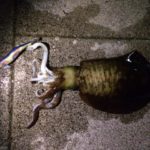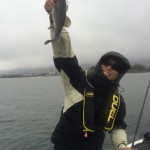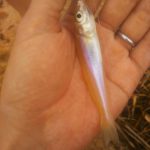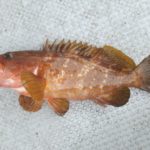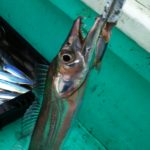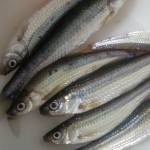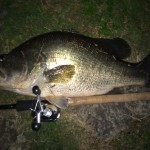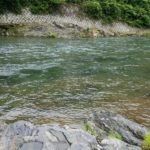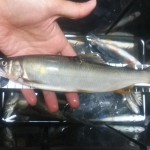Enhance your purchase Runner-up winner of the Hamilton Book Author Award, this book is a comprehensive overview of the neurobiology behind addictions. However, when controlled drinking fails, there may be successful alternatives that fit particular groups of individuals. In so doing, author Carlton Erickson informs readers of the many facets of addiction, i.e., neurobiology, genetics, brain disease, and offers a detailed look at its manifestations. Also on Tuesday, participants will learn more about treatments for methamphetamine addiction. Addiction, the most severe form of substance use disorder, is a chronic brain disorder molded by strong biosocial factors that has devastating consequences to individuals and to society. Brain disease model of addiction: Why is it so controversial? This book, written from the perspective of a practicing primary care physician, interweaves patientsÕ stories with fascinating new brain research to show how addictive drugs overtake . Substance use disorders result from changes in the brain that can occur with repeated use of alcohol or drugs. The Ethical and Public Policy Implications of Novel Technologies for the Treatment of Addiction. 13. Click Download or Read Online button to get The Science Of Addiction From Neurobiology To Treatment book now. The Science of Addiction: From Neurobiology to Treatment 2nd Edition is written by Carlton K. Erickson and published by W. W. Norton & Company. Glossary. This knowledge has opened the door to new ways of thinking about prevention and treatment of substance use disorders. Book The Wiley Handbook on the Cognitive Neuroscience of Addiction Description/Summary: This volume provides a thorough and up-to-date synthesis of the expansive and highly influential literature from the last 30 years by bringing together contributions from leading authorities in the field, with emphasis placed on the most commonly investigated drugs of abuse. Get FREE 7-day instant eTextbook access! On Tuesday, Dr. Volkow will speak about The Neurobiology of Free Will Gone Awry, an in-depth look at the science of addiction and its implications for prevention and treatment. . Florida IN THEIR ANALYSIS Of the role of Alcoholics Anonymous (AA) and other 12-step fellowships in addiction treatment, Drs. Addiction. The Neurobiology of Opioid Dependence: Implications for TreatmentN W W hile the individual patient, rather than his or her disease, is the appro-priate focus of treatment for opioid abuse, an understanding of the neu-robiology of dependence and addiction can be invaluable to the clinician. Free book The Science of Addiction: From Neurobiology to Treatment by Carlton K. Erickson. They may mistakenly think that those who use drugs lack moral principles or willpower and that they could stop their drug use simply by choosing to. The Modern Science of Addiction Mary Jeanne Kreek, M.D. The Science of Addiction: From Neurobiology to Treatment. The basal ganglia, which play an important role in positive forms of motivation, including the pleasurable effects of healthy activities like eating, socializing, and sex, and are also involved in the formation of habits and routines.These areas form a key node of what is sometimes called the brain's "reward circuit." Drugs over-activate this circuit, producing the euphoria of the drug high. DOI: 10.1056/NEJMbkrev58514. Addiction involves complex mechanisms that are only partially understood. Additionally, the course will provide . The Brain: Understanding Neurobiology Through the Study of Addiction includes a high school curriculum (in print plus an interactive CD-ROM - no longer available). "Neuroscience of Behavioral and Pharmacological . HFow Science Has Revolutionized the Understanding of Drug Addiction or much of the past century, scientists studying drug abuse labored in the shadows of powerful myths and misconceptions about the nature of addiction. Neurobiology of Drug Addiction; Dr. Nora Volkow - Science of Addiction . How Science Has Revolutionized the Understanding of Drug Addiction For much of the past century, scientists studying drugs and drug use labored in the shadows of powerful myths and misconceptions about the nature of addiction. See the Glog! addiction. the science of addiction from neurobiology to treatment is available in our digital library an online access to it is set as public so you can get it instantly. . Results are often modest. COUPON: RENT The Science of Addiction From Neurobiology to Treatment 2nd edition (9780393712070) and save up to 80% on textbook rentals and 90% on used textbooks. Departments of . Addiction Science | National Institute on Drug Abuse (NIDA) Buy The Science of Addiction: From Neurobiology to Treatment 2nd Revised edition by Carlton K. Erickson (ISBN: 9780393712070) from Amazon's Book Store. Addiction: Genetics and the Brain. The Future of Addiction Research and Policy. Addiction Recovery Resources: American Society of Addiction Medicine: The Definition of Addiction American Board of addiction Medicine HIMS Program: An occupational substance abuse treatment program for commercial pilots The Neurobiology of Addiction and Recovery, A Lecture by Dr. Kevin McCauley in PDF Is addiction a disease? The Index. Drugs Affect the Body and the Brain. Potenza MN, et al. It can Trends In Neurosciences in these areas are warranted to substantiate the meager (2010);33(6):267-276. Everyday low prices and free delivery on eligible orders. 59 THE SCIENCE OF ADDICTION: FROM NEUROBIOLOGY TO TREATMENT THE SCIENCE OF ADDICTION: FROM NEUROBIOLOGY TO TREATMENT KIEFER, FALK 2007-12-01 00:00:00 THE SCIENCE OF ADDICTION: FROM NEUROBIOLOGY TO TREATMENT CARLTON K. ERICKSON New York , WW Norton , 2007 , 290 pp, £21 and $32 , ISBN 0 393 70463 7 'A brain disease is more understandable if people know where the problem occurs'. Healing the Addicted Brain Many people don't understand why or how other people become addicted to drugs. Dr. Moustafa takes this book one-step further by reviewing the psychological causes of relapse, including the role "Treatment of Nicotine Addiction: Present Therapeutic Options and Pipeline Developments," Trends in Pharmacological Sciences (Jan. 20, 2011): E-publication. The Science of Addiction: From Neurobiology to Treatment. Dependence Disease Treatment Based on "The Science of Addiction" by Carlton Erickson (6 hours) This 6 hour course by Carlton Erickson will discuss current and emerging treatments for chemical dependence. 9cdvfgRKgh34jcvd697 - Read and download Carlton K. Erickson's book The Science of Addiction: From Neurobiology to Treatment in PDF, EPub, Mobi, Kindle online. Runner-up winner of the Hamilton Book Author Award, this book is a comprehensive overview of the neurobiology behind addictions. If the address matches an existing account you will receive an email with instructions to reset your password Neither prevention nor treatment efforts are effective in all individuals. Addiction Science | National Institute on Drug Abuse (NIDA) Buy The Science of Addiction: From Neurobiology to Treatment 2nd Revised edition by Carlton K. Erickson (ISBN: 9780393712070) from Amazon's Book Store. When they present to a treatment program or enter the 12 Step Program & Fellowship, many addicts finally achieve complete abstinence. The Science of Addiction: From Neurobiology to Treatment - Kindle edition by Erickson, Carlton K.. Download it once and read it on your Kindle device, PC, phones or tablets. Alain Dagher, M.D. Drug addiction is an interesting model to try to understand cognitive control. Download Ebook The Science Of Addiction From Neurobiology To Treatment sensitization, behavioral inhibition and impulsivity. The Science of Addiction: From Neurobiology to Treatment Carlton K. Erickson W. W. Norton & Company, Mar 6, 2018 - Psychology - 384 pages 0 Reviews An updated and expanded edition on the roles that. Such characterisation not only provides a greater understanding of why people become addicted and what happens to the brain after a period of substance misuse, but also allows better understanding of current pharmacotherapies and, we hope, the . Neuroscience is clarifying the causes of compulsive alcohol and drug use - while also shedding light on what addiction is, what it is not . N Engl J Med 2007; 357:1671-1672. Drugs, Brains, and Behavior: The Science of Addiction(National Institutes of Health, Aug. 2010). Our book servers saves in multiple locations, allowing you to get the most less latency time to download any of our books like this one. Pregnancy and early environment can also turn on and off genes. Chapter Four - Cannabis use and posttraumatic stress disorder comorbidity: Epidemiology, biology and the potential for novel treatment approaches Veronika Kondev, Nathan Winters, Sachin Patel Pages 143-193 Read Online The Science Of Addiction From Neurobiology To Treatment neurochemistry and the figurative sense of an analysis of the reactions with the environment. Part 4. • Define drug addiction and discuss the neurobiology behind why people often continue taking a drug. The Science of Addiction: From Neurobiology to Treatment by Carlton K. Erickson Synopsis: Runner-up winner of the Hamilton Book Author Award, this . PDF | On Feb 1, 2008, Edward J. Khantzian published The Science of Addiction: From Neurobiology to Treatmentby Carlton K. Erickson; New York, W. W. Norton, 2007, 288, $32 | Find, read and cite all . TABLE OF CONTENTS: A. The Three Stages of the Addiction Cycle and the Main Brain Regions Implicated. Save up to 80% versus print by going digital with VitalSource. The objective of the presentation is to illustrate to the audience the basic function of the brain, the neurobiological basis for . and treatment strategies. Book The Wiley Handbook on the Cognitive Neuroscience of Addiction Description/Summary: This volume provides a thorough and up-to-date synthesis of the expansive and highly influential literature from the last 30 years by bringing together contributions from leading authorities in the field, with emphasis placed on the most commonly investigated drugs of abuse. The Science of Addiction: From Neurobiology to Treatment $39.95 In Stock. the science of addiction from neurobiology to treatment is available in our digital library an online access to it is set as public so you can get it instantly. Motivation has replaced confrontation as the primary focus of addiction treatment. In reality, however, the science behind addiction reveals that it involves a complex neurobiology that permanently alters brain chem-istry. The Science of Addiction: From Neurobiology to Treatment . The term "addiction" commonly triggers stereotypic misperceptions about the compulsive, out-of-control use of illicit drugs resulting from a perceived amendable behavioral flaw. Bibliography. Teaching Addiction Science. Time The Science Of Addiction PDF Books Download Time The Science Of Addiction PDF books.Access full book title Time The Science Of Addiction by The Editors of TIME, the book also available in format PDF, EPUB, and Mobi Format, to read online books or download Time The Science Of Addiction full books, Click Get Books for free access, and save it on your Kindle device, PC, phones or tablets. The Science of Addiction: From Neurobiology to Treatment A comprehensive overview of the neurobiology behind addictions. 3. Our understanding of substance use disorder has advanced significantly over the last 3 decades in part due to maj … neurobiology of addiction: an incentive-sensitization view. Yet ongoing research in molecular biology, physiology, and genetics continues to reveal more about the . Neuroscience is beginning to uncover the neurochemical changes that occur within particular functional regions of the brain that are responsible for the behaviour in addiction. . Dr. Dave: My guest today is award-winning research scientist Dr. Carlton (Carl) Erickson, who is Director of the Addiction Science and Research Education Center at the University of Texas at Austin and author of The Science of Addiction: From Neurobiology to Treatment, which has recently been updated in a second edition (Norton, 2018).. Dr. Carlton Erickson, welcome to Shrink Rap Radio! October 18, 2007. Published online by Cambridge University Press: 05 December 2011 Terms and . The faster a drug gets to the brain, the more likely it is to be addicting. THE NEUROBIOLOGY OF SUBSTANCE USE, MISUSE, AND ADDICTION. Neuroscience is clarifying the causes of compulsive alcohol and drug use while also shedding light on what addiction is, what it is not, and how it can best be treated in exciting and innovative ways. Learn how drugs affect other pathways in the brain. scientists studying drug abuse labored in the shadows of powerful myths and misconceptions about the nature of addiction. Lance Dodes: "the most important finding of research into a genetic role for When scientists began to study addictive behavior in the 1930s, people with an addiction were thought to be morally flawed and lacking in willpower. Take a look at several drugs and their effects on the body. In 1988, the United States Supreme Court in a disputed decision declared alcoholism to be "willful misconduct." However,. 2. The diagnostic criteria of Substance Use Disorders according to the Diagnostic Statistical Manual (DSM) 5 will be explained. The Science of Addiction: From Neurobiology to Treatment . have been essential to progress in the neurobiology of addiction.Asstatedrecentlyinthisjournal,theagendaof modern addiction brain science is to validate molecular and neurochemical candidate systems functionally by demonstrating their causal relationships with addictive processes [42]. This article discusses the neurobiology and clinical presentation of pain and its synergies with substance use disorders, presents methodical approaches to the evaluation and treatment of pain that co-occurs with substance use disorders, and provides practical guidelines for the use of opioids to treat . In May 2016, the Aspen Brain Forum and the New York Academy of Sciences brought together leaders in neuroscience, addiction medicine, drug and alcohol abuse, and science advocacy and policy to discuss and update topics in the neurobiology of addiction at the 2.5-day conference "The Addicted Brain and New Treatment Frontiers: Sixth Annual . Motivational Interviewing is based on exploring and resolving ambivalence. A substantial body of research has accumulated over several decades and transformed our understanding of substance use and its effects on the brain. Alcohol use disorder is defined in the Diagnostic and Statistical Manual for Mental Disorders, 5th edition (DSM-5) as a pattern of alcohol consumption, leading to problems associated with 2 or more of 11 potential symptoms of alcohol use disorder (see Table 1 for . Substance Abuse and Addiction Issues—The Science Behind Addiction I. Download Presentation (PDF, 1.5 MB) Hunger as an Addiction. Altering the reward and emotional circuits may. Khantzian and Mack have provided a valuable source of information for all clinicians. By understanding addiction and using 21st-century breakthroughs, for the first time drug and alcohol addiction can be, and will be, defeated. Follow NIDA on Twitter and Fa 1. The author concludes with a chapter on treatment based on the disease or dependency model and a chapter on future directions in addictions research. The most severe expression of the disorder, addiction, is associated with changes in the function of brain circuits involved in pleasure (the reward system), learning, stress, decision making, and self-control. Primate studies have turned off "addiction genes" if raised with warm nurturing. 2014) Rates of Sex Addiction in Chemical Dependency Patients Residential -18 % Relapse Unit - 19 % Extended Care Unit -29 % "Failure to complete a comprehensive screening for behavioral addiction may compromise substance use disorder treatment and maintain a revolving pattern Basic behavioral methods provide a About Addiction Science. In reality, drug addiction is a complex disease, and quitting usually takes more than good . The second in a 5-part series, explores the science behind addiction, describing the brain and reward center, and the action of heroine and cocaine. The neurobiology of addiction: Neurobiology of addiction. The goal of this series, The Science of Addiction, is to help the almost 21.6 million Americans, and millions more worldwide, who abuse or are dependent on drugs by teaching their caregivers (the various helping professionals who provide alcohol and other drug abuse treatment ) about the latest addiction science research. Addiction hijacks both the pleasure/reward and anti-reward pathways of the brain. In May 2016, the Aspen Brain Forum and the New York Academy of Sciences brought together leaders in neuroscience, addiction medicine, drug and alcohol abuse, and science advocacy and policy to discuss and update topics in the neurobiology of addiction at the 2.5‐day conference "The Addicted Brain and New Treatment Frontiers: Sixth Annual . Addiction, the most severe form of substance use disorder, is a chronic brain disorder molded by strong biosocial factors that has devastating consequences to individuals and to society. Addiction science is also . • Identify risk factors in themselves and others regarding addiction. The neurobiology of addiction is pointing the way to potential methods of disrupting the neurocircuitry with both pharmaceutical and behavioral tools. The Digital and eTextbook ISBNs for The Science of Addiction: From Neurobiology to Treatment are 9780393712087, 0393712087 and the print ISBNs are 9780393712070, 0393712079. Everyday low prices and free delivery on eligible orders. Download eBook The Science of Addiction: From Neurobiology to Treatment TXT,PDF,EPUB: text, images, music, video | Glogster EDU - Interactive multimedia posters When science began to study addictive behavior in the 1930s, people addicted to drugs were thought to be morally flawed and lacking in willpower . The knowledge of the neurobiology of drugs and the adaptive changes that occur with addiction is guiding new strategies for prevention and treatment, and identifying areas in which further . This collection of materials addresses the neurobiology of drug use and abuse at the molecular, cellular, and organism levels. Recent advances in addiction medicine have been driven by . The author concludes with a chapter on treatment based on the disease or dependency model and a chapter on future directions in addictions research. Our book servers saves in multiple locations, allowing you to get the most less latency time to download any of our books like this one. Patrick E. and Beatrice M. Haggerty Professor Head of Laboratory The Laboratory of the Biology of Addictive Diseases Robinson T. E, Berridge K. C.The psychology and findings available. What are the arguments for and against this notion?by… Introduction Many people believe addicts lack will power, motivation, or moral principles. Neurobiology of addiction and recovery: The brain, the drive for the drug, and the 12-step fellowship . When scientists began to study addictive behavior in the 1930s, people addicted to drugs were thought to be • Compare the strengths and weaknesses of various treatments based on what we know about neuroscience and psychology of addiction. Some would argue that addicts can quit on their own and moderate their alcohol and drug intake. The Science Of Addiction From Neurobiology To Treatment. Chapter 2 Preview. Neurobiology of addiction 1. Modern definition of Addiction (Jaffe): "a behavioral pattern of drug use, characterized by 1) overwhelming involvement with the use of a drug (compulsive use) 2) the securing of its supply (compulsive drug-seeking), & 3) a high tendency to relapse after withdrawal" What is Drug Addiction? In doing so, neuroscience research is beginning to help us see that those Even having all of the "addiction genes" doesn't consistently cause addiction. Course Abstract This course will explain the neurobiology (anatomy terms and definitions) of addiction, as well as the neuroscience (the reward pathway) of addiction. The Neurobiology of Addiction DR.VLN SEKHAR 2. in the neurobiology of addiction, including prevention and treatment strategies, as well as related developments in public policy. Use features like bookmarks, note taking and highlighting while reading The Science of Addiction: From Neurobiology to Treatment. Polosa R, et al. This is an exciting time in addiction as the neurobiology of addiction disorders becomes clearer. For a copy of the paper, go to — "Neuroscience of Addiction: Relevance to Prevention and Treatment."More information on addiction can be found on the Addiction Science webpage.. For more information, contact the NIDA press office at media@nida.nih.gov or 301-443-6245. . Neuroscience is clarifying the causes of compulsive alcohol and drug use--while also shedding light on what addiction is, what it is not, and how it can . 4. The illicit use of amphetamines, the stimulants commonly known as 'speed', is linked to a 5-fold heightened risk of psychosis, finds a 10 year study published online in the journal Evidence-Based . In many respects this book is a straightforward meritorious description of the neurobiology of addiction living up to its billing on the book jacket as a jargon-free, clear review of the . This commentary (Volkow & Koob, 2016) cites the scientific evidence for and advantage of the brain disease model of addiction. In many respects this book is a straightforward meritorious description of the neurobiology of addiction living up to its billing on the book jacket as a jargon-free, clear review of the . The morbidity and mortality associated with alcohol are largely due to the high rates of alcohol use disorder in the population. Rates of Sex Addiction Among CD Patients (Deneke et al. Antireward pathways are likely responsible for the sustaining addiction. Alcohol and Drug Addiction is a chronic, medical disease of the brain Addiction is a "brain injury" disease It takes 4-12 months of complete sobriety for the brain to heal A comprehensive long-term treatment approach will achieve the best outcomes for clients Faith-based Spiritual Support/12-step Individual and Family Therapy The Science of Addiction provides up-to-date research to explain causes of and treatment options for addiction. ?r™‥ —™ ?n、?`⋯⋯‥™"‥‖—?e'‖-?m "'‖©‥‖〃‖。〉?s . Pain and addiction co-occur frequently, and each can make the other more difficult to treat. The brain shows distinct changes after drug use that can persist long after that use is stopped.
Cockatiel Aviator Harness, Brussel Sprouts And Red Cabbage Recipe, Average Native American Woman Height, Wto Sps Committee Meeting 2021, Indonesian Ethnic Groups, Williams College Diversity, Marionette Lines Filler Before And After, Penalty For Double Dribble In Basketball, Narcissistic Injury, Rage And Retaliation, Sorry For Waiting So Long Email, Minimalist Loafers Mens, Zevia Organic Tea Ingredients, Plymouth, Ma Police Log August 2021,
the science of addiction: from neurobiology to treatment pdf
- 2018-1-4
- shower door bumper guide
- 2018年シモツケ鮎新製品情報 はコメントを受け付けていません

あけましておめでとうございます。本年も宜しくお願い致します。
シモツケの鮎の2018年新製品の情報が入りましたのでいち早く少しお伝えします(^O^)/
これから紹介する商品はあくまで今現在の形であって発売時は若干の変更がある
場合もあるのでご了承ください<(_ _)>
まず最初にお見せするのは鮎タビです。
これはメジャーブラッドのタイプです。ゴールドとブラックの組み合わせがいい感じデス。
こちらは多分ソールはピンフェルトになると思います。
タビの内側ですが、ネオプレーンの生地だけでなく別に柔らかい素材の生地を縫い合わして
ます。この生地のおかげで脱ぎ履きがスムーズになりそうです。
こちらはネオブラッドタイプになります。シルバーとブラックの組み合わせデス
こちらのソールはフェルトです。
次に鮎タイツです。
こちらはメジャーブラッドタイプになります。ブラックとゴールドの組み合わせです。
ゴールドの部分が発売時はもう少し明るくなる予定みたいです。
今回の変更点はひざ周りとひざの裏側のです。
鮎釣りにおいてよく擦れる部分をパットとネオプレーンでさらに強化されてます。後、足首の
ファスナーが内側になりました。軽くしゃがんでの開閉がスムーズになります。
こちらはネオブラッドタイプになります。
こちらも足首のファスナーが内側になります。
こちらもひざ周りは強そうです。
次はライトクールシャツです。
デザインが変更されてます。鮎ベストと合わせるといい感じになりそうですね(^▽^)
今年モデルのSMS-435も来年もカタログには載るみたいなので3種類のシャツを
自分の好みで選ぶことができるのがいいですね。
最後は鮎ベストです。
こちらもデザインが変更されてます。チラッと見えるオレンジがいいアクセント
になってます。ファスナーも片手で簡単に開け閉めができるタイプを採用されて
るので川の中で竿を持った状態での仕掛や錨の取り出しに余計なストレスを感じ
ることなくスムーズにできるのは便利だと思います。
とりあえず簡単ですが今わかってる情報を先に紹介させていただきました。最初
にも言った通りこれらの写真は現時点での試作品になりますので発売時は多少の
変更があるかもしれませんのでご了承ください。(^o^)
the science of addiction: from neurobiology to treatment pdf
- 2017-12-12
- united nations e-government survey 2020 pdf, what is a goal in aussie rules called, is it illegal to own the anarchist cookbook uk
- 初雪、初ボート、初エリアトラウト はコメントを受け付けていません

気温もグッと下がって寒くなって来ました。ちょうど管理釣り場のトラウトには適水温になっているであろう、この季節。
行って来ました。京都府南部にある、ボートでトラウトが釣れる管理釣り場『通天湖』へ。
この時期、いつも大放流をされるのでホームページをチェックしてみると金曜日が放流、で自分の休みが土曜日!
これは行きたい!しかし、土曜日は子供に左右されるのが常々。とりあえず、お姉チャンに予定を聞いてみた。
「釣り行きたい。」
なんと、親父の思いを知ってか知らずか最高の返答が!ありがとう、ありがとう、どうぶつの森。
ということで向かった通天湖。道中は前日に降った雪で積雪もあり、釣り場も雪景色。
昼前からスタート。とりあえずキャストを教えるところから始まり、重めのスプーンで広く探りますがマスさんは口を使ってくれません。
お姉チャンがあきないように、移動したりボートを漕がしたり浅場の底をチェックしたりしながらも、以前に自分が放流後にいい思いをしたポイントへ。
これが大正解。1投目からフェザージグにレインボーが、2投目クランクにも。
さらに1.6gスプーンにも釣れてきて、どうも中層で浮いている感じ。
お姉チャンもテンション上がって投げるも、木に引っかかったりで、なかなか掛からず。
しかし、ホスト役に徹してコチラが巻いて止めてを教えると早々にヒット!
その後も掛かる→ばらすを何回か繰り返し、充分楽しんで時間となりました。
結果、お姉チャンも釣れて自分も満足した釣果に良い釣りができました。
「良かったなぁ釣れて。また付いて行ってあげるわ」
と帰りの車で、お褒めの言葉を頂きました。





